
|
GCOOS is the Gulf of Mexico regional component of the U.S. Integrated Ocean Observing System (IOOS). Our mission is to provide timely, reliable and accurate information on the open and coastal ocean waters of the Gulf of Mexico to ensure a healthy, clean, productive ocean and resilient coastal zone.
|
|
|
|
April 2018 - In This Issue:
|
|
|
|
|
Greetings,
We just finished up our annual meeting in New  Orleans. I want to thank all of our presenters for sharing their work and latest news with us -- it was a great program covering the Gulf, not just in the U.S. but in Mexico as well. Orleans. I want to thank all of our presenters for sharing their work and latest news with us -- it was a great program covering the Gulf, not just in the U.S. but in Mexico as well.
We also celebrated our certification and the life of Matt Howard, whose presence we missed dearly but felt during a special celebration toward the meeting's end (see our video). We've created the Matthew K. Howard Memorial Fund in his honor and hope you and your colleagues will make a donation to help us honor his legacy while we support up-and-coming students in his memory.
Barb Kirkpatrick
Executive Director

|

|
GCOOS Chair Bill Lingsch (far left) and Barb Kirkpatrick (far right) with outgoing board members Gary Jeffress, Texas A&M University - Corpus Christi, Terry McPherson, LMI, and Mike Spranger, University of Florida.
|
Juan Carlos Herguera, Principal Researcher, Department of Marine Ecology, Center for Scientific Research and Higher Education at Ensenada, Mexico
|

|

|
William Burnett, Technical Director to the Commander, Naval Meteorology and Oceanography Command/ Task Group
|
Porfirio Alvarez, Executive Secretary for the Consortium of Marine Research Institutions of the Gulf of Mexico and the Caribbean
|

|
|
|
Nadine Slimak, Public Relations & Content Marketing, Vetted Communications, LLC
|
|
|
GCOOS Annual Meeting Report
|
GCOOS hosted our Annual Meeting in New Orleans last week. The three-day Members and Directors meeting included an open session for all GCOOS members and partners and closed sessions for the Board of Directors. At the invitation of Shell Marine Scientist and Regulatory Policy Specialist and GCOOS Board Member Ruth Perry, the Board of Directors also had the opportunity to tour One Shell Square in New Orleans, the hub of Shell's Gulf of Mexico operations. The tour was focused on the Integrated Operations Center (IOC), a control hub that allows Shell teams to have remote access to offshore, deepwater platforms like Olympus and Mars B.
Before Shell began using the IOC model, technicians on platforms would complete work overseen by onshore personnel mainly via radio contact. Now, Shell uses Remote Control Rooms (RCR), secure rooms dedicated to each platform that gives onshore engineers the ability to see in real-time what's happening at offshore locations through real-time video feeds of sensors throughout the platforms. I
t also includes the capability to connect
land-based staff to the offshore engineers and technicians via secure video conferencing.
|
|
| Marc Chevis, Shell IOC Manager. |
|
|
|
Today, Shell uses the IOC to monitor wells in the
 |
|
 |
Jamel Banks, Shell Facilities Engineer. |
Gulf and elsewhere in the world, collecting data variables from 16,000 to 17,000 pieces of equipment every day -- some 870 million data points per day. "It was amazing to see the capabilities of the IOC," said GCOOS Director Dr. Barbara Kirkpatrick. "It really goes to the heart of what having access to real-time data means -- not just in forecasting things like hurricanes and tropical storms, but in allowing industry to respond to changes as they occur in real-time."
The IOC helps Shell optimize production while promoting human and environmental safety, said Marc Chevis, the Center's Manager. "We have data access to key systems from here that tell us about the health of the system," he said. "It also gives us shared situational awareness -- onshore and offshore teams have access to all the same information."
 |
|
 |
Shell spokesman Theo Rolfvondenbaumen. |
The GCOOS Members Meeting included Gulf-based ocean-observing updates from several speakers:
- William Burnett, Technical Director to the Commander, Naval Meteorology and Oceanography Command/ Task Group, provided an update on the Navy's underwater glider test bed and activities.
- Ruth Perry discussed public/academic/industry partnerships that Shell is coordinating with federal agencies and the academic sector to improve the collection of data on the blue ocean - offshore, deepwater areas.
- Kent Satterlee, President of Kent Satterlee & Associates LLC, provided an update on efforts to convert offshore oil and gas platforms into research and monitoring stations.
- Juan Carlos Herguera, Principal Researcher, Department of Marine Ecology, Center for Scientific Research and Higher Education at Ensenada, Mexico, will discuss CIGOM: Consortium of Investigations in the Gulf of Mexico.
- Porfirio Alvarez, Executive Secretary for the Consortium of Marine Research Institutions of the Gulf of Mexico and the Caribbean, and Xavier Flores, University of Baja provided an update on high frequency radar projects in the Southern Gulf of Mexico.
- Carl Gouldman, U.S. IOOS Program Office Director, provided updated budget information, core IOOS Office goals, its new strategic plan and more.
GCOOS Director Kirkpatrick welcomed new members from the academic, industry, government and non-governmental sectors into the GCOOS fold:
NGO
- Audubon Nature Institute
- Navarre Beach Marine Science Station
- START (Solutions to Avoid Red Tide)
Industry
- Fototerra Aerial Survey, LLC
- Gardline
- LGL Ecological Research Associates, Inc.
Academic
- Louisiana Science Teachers Associations
- New College of Florida
- Texas A&M AgriLife
- Texas Institute for Applied Environmental Research
Governmental
GCOOS also thanked outgoing Board members for their contributions to the organization. Their terms officially expire in the fall:
- Terry McPherson, LMI
- Mike Spranger, University of Florida
- Gary Jeffress, Texas A&M University - Corpus Christi
Celebrating Certification
|
The Matt Howard Memorial Fund
|
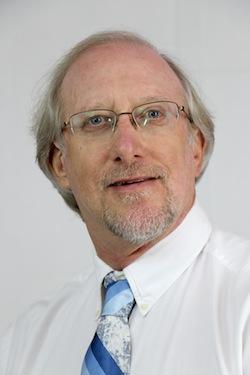
In addition to celebrating its recent IOOS certification and the life of DMAC Lead Matt Howard (1952-2018), GCOOS also unveiled the new Matt Howard Memorial Fund during our annual meeting. As one of the founding staff members of GCOOS, Matt played a critical role in helping GCOOS gain certification and setting the data management standards that ensure our data is timely, reliable and accurate. He was also an accomplished research scientist with many contributions to the study of oceanography.
Following Matt's untimely death in February, his many friends and colleagues sought to memorialize his professional gifts and talents for oceanographic research and data systems and solutions, as well as his personal intellect, generosity, enthusiasm and -- of course -- his sense of humor.
GCOOS is currently working to have an undersea geological feature named in his honor and has established the Matthew K. Howard Memorial Fund. The Fund will support:
- The Howard Scholarship at TAMU: To help support a deserving graduate student in the field of ocean observing systems.
- The Howard Innovation Challenge: An annual competition for students to develop novel products based on GCOOS/IOOS data or novel ways to share data. Projects will require working in a collaborative environment.
- The Howard Innovation Award: This award will recognize exemplary and visionary data management practices in the GCOOS footprint.
- The Howard Mockumentary Competition: To celebrate Matt's humor, GCOOS will host a video contest that uses humor to tackle a serious ocean monitoring or data management issue.
Donate to the Fund Now! |
| Best Practices in Ocean Observing |
The AtlantOS/NSF/IOC Best Practice Working Group has been building an OceanBestPractices System to provide sustained, open access to ocean observation best practices. 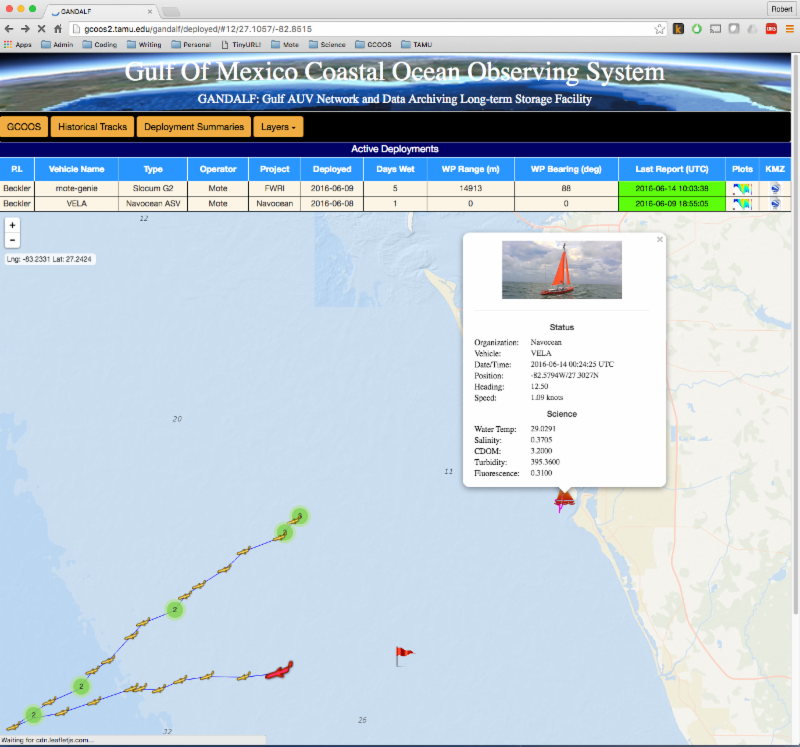 This is being in collaboration with well-known networks and institutions with the objective of providing an easy means of discovery and access to support comparison and broader implementation of community best practices. These practices cover everything from sensors and observations to data and information management as well as user interfaces. This is being in collaboration with well-known networks and institutions with the objective of providing an easy means of discovery and access to support comparison and broader implementation of community best practices. These practices cover everything from sensors and observations to data and information management as well as user interfaces.
AtlantOS/NSF/IOC Best Practice Working GroupOceanBestPractices (OBP) is an open access, permanent, digital repository of community best practices in ocean-related sciences maintained by the International Oceanographic Data and Information Exchange (IODE) of the UNESCO-IOC as an IOC (IODE, GOOS) coordinated activity.
On Tuesday, May 8, the OBP will host a one hour meeting to bring you up-to-date with developments, demonstrate the new semantic search interface and discuss next steps and issues. Meeting time is 0700 PDT, 1000 EDT and 1600 CEST.
Email [email protected] if you are interested in participating in the meeting and the group will send you meeting details.
|
| Omnibus Appropriations Act |
The Fiscal Year (FY) 2018 Omnibus Appropriations Act passed by Congress  on March 22 included support for many ocean and coastal programs, including IOOS. IOOS regional systems were allocated $35 million, an increase of $4.3 million from FY 17. This support will allow the eleven IOOS regional observing system to fill critical gaps in the High-Frequency (HF) Radar network and underwater gliders. on March 22 included support for many ocean and coastal programs, including IOOS. IOOS regional systems were allocated $35 million, an increase of $4.3 million from FY 17. This support will allow the eleven IOOS regional observing system to fill critical gaps in the High-Frequency (HF) Radar network and underwater gliders.
|
UN World Oceans Assessment Nominations
|
The United Nations (UN) is requesting nominations of scientists for a Pool of Experts to participate in drafting and review of the second World Oceans Assessment (WOA-II). They 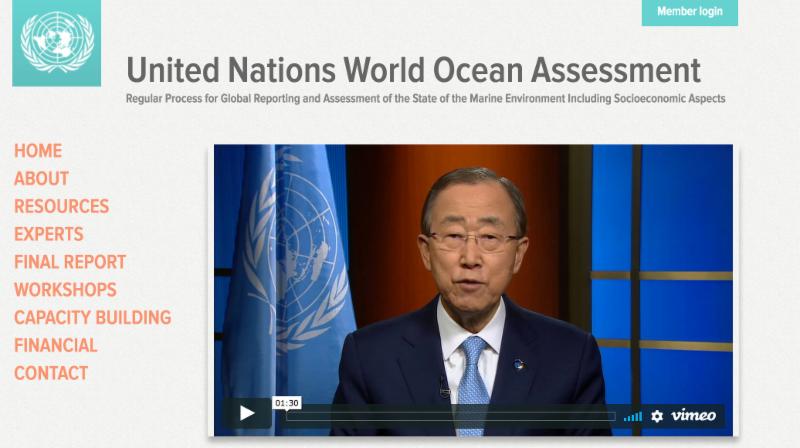 are looking for scientists across a large range of marine-related disciplines, with expertise in all the world's oceans and marine areas, and especially encourage those with experience in social sciences to apply. The UN requires scientists who have the ability to serve in a voluntary and independent individual capacity, with variable time commitments to the effort available depending on the role (e.g. reviewer, commentator, or writing team member). are looking for scientists across a large range of marine-related disciplines, with expertise in all the world's oceans and marine areas, and especially encourage those with experience in social sciences to apply. The UN requires scientists who have the ability to serve in a voluntary and independent individual capacity, with variable time commitments to the effort available depending on the role (e.g. reviewer, commentator, or writing team member).
Those interested should contact Allison Reed at State Department [email protected] for further information. The deadline for the first round of nominations is April 30, and the projected completion date for the WOA-II is 2020. |
New GRP Advisory Committee
|
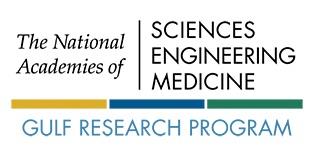
The National Academies of Sciences, Engineering and Medicine is seeking nominations for experts to serve on a new standing committee to guide the Gulf Research Program in the design, planning and implementation of a long-term research campaign to improve understanding of the Gulf of Mexico Loop Current and other Gulf ocean systems.
Committee activities will include:
- Advising on funding opportunities for a research campaign based on recommendations outlined in Understanding and Predicting the Gulf of Mexico Loop Current: Gaps and Recommendations
- Identifying and developing opportunities for collaboration and joint sponsorship of activities and recommending ways to increase interaction among relevant organizations
- Reviewing the success of projects supported by the Understanding Gulf Ocean Systems Grants 1 funding opportunity and assessing their collective capacity to promote the goals of the long-term campaign
- Specifying any modifications to the long-term field campaign based on the most recent advancements in related fields or findings by ongoing projects funded by the Gulf Research Program and others
We are looking for individuals with expertise in large multidisciplinary oceanographic campaigns, observational physical oceanography, data communications and data management and oceanographic and atmospheric modeling and forecasting.
Committee members selected will be required to be free from conflicts-of-interest and will not be eligible to apply for funding opportunities developed from the committee's work.
- The deadline for nominations is May 4, 2018. Self-nominations are accepted.
- Make a nomination
|
| Register Now: GOMA All Hands |

Time is running out to register and reserve your room for the Gulf of Mexico Alliance 2018 All Hands Meeting June 11-15 in St. Petersburg, Fla.
|
2017 Earth Decadal Survey Meeting
|
NASA is organizing Community Forums for the new 2017 Earth Decadal 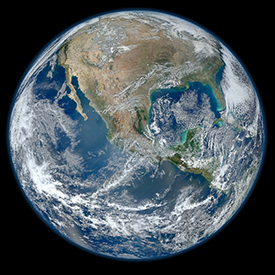 Survey. The first in a series of these Community Forums will take place from 12:45 p.m. to 2:45 p.m. EDT on May 10. The meeting will include information on the approach, timing, progress and especially opportunities to engage with this process. Survey. The first in a series of these Community Forums will take place from 12:45 p.m. to 2:45 p.m. EDT on May 10. The meeting will include information on the approach, timing, progress and especially opportunities to engage with this process.
The 2017-2027 Decadal Survey for Earth Science and Applications from Space (ESAS 2017) will help shape science priorities and guide agency investments into the next decade. The survey, sponsored by NASA, NOAA and the USGS, is driven by input from the scientific community and policy experts.
The Committee on the Decadal Survey for Earth Science and Applications from Space (ESAS) of the National Academies of Sciences, Engineering and Medicine (NASEM) Space Studies Board, Division on Engineering and Physical Sciences released the 2017 Decadal Survey, "Thriving on Our Changing Planet: A Decadal Strategy for Earth Observations from Space," in January.
People can attend the May 10 forum in person, through Webex or via Telecon. The in-person location is NASA Headquarters in Washington, D.C. (details at the link above).
|

On April 27, the LSU College of the Coast and the Environment will celebrate the 10th anniversary of
the Coastal Environmental Science (CES) degree. CES is one of the few undergraduate degrees in the country that combines environmental sciences with oceanography and coastal sciences.
|
| Hurricane Recovery Grants |
|
The Gulf Research Program announced the award of 11 grants totaling $341,283 to assist in the recovery of scientific research impacted by Gulf Coast hurricanes Harvey and Irma. The awards are the first of two fast-track grant cycles aimed at helping in the repair, replacement, and recovery of equipment, data, or other research materials damaged or lost as a result of the hurricanes and their aftermaths.
|
Ocean Acidification Monitoring
|
|
The bay receives freshwater run-off from a watershed that is approximately 2,200 square miles and supports seagrass meadows, mangrove forests, salt marshes and salt barrens.  More than 3 million people live within the Tampa Bay watershed, which is highly urbanized, supporting industrial, agricultural and suburban land uses. The Tampa Bay Estuary Program is partnering with researchers to assess the contribution of these habitats to sequestration of carbon dioxide as blue carbon, and the role of seagrass in protecting Tampa Bay's marine species from harmful effects of climate change and ocean acidification. More than 3 million people live within the Tampa Bay watershed, which is highly urbanized, supporting industrial, agricultural and suburban land uses. The Tampa Bay Estuary Program is partnering with researchers to assess the contribution of these habitats to sequestration of carbon dioxide as blue carbon, and the role of seagrass in protecting Tampa Bay's marine species from harmful effects of climate change and ocean acidification.
These research activities are being enhanced by the deployment of a Land/Ocean Biogeochemical Observatory (LOBO), Ocean Carbon System (OCS) in partnership with the U.S. Geological Survey (USGS), and in collaboration with the USF Center for Maritime and Port Studies and the Tampa Bay Physical Oceanographic Real Time System to provide real-time, high resolution water quality data through this interactive website.
|
Restoration Funding Calendar
- NOAA RESTORE Act Science Program hosts a three-year calendar that consolidates planned funding opportunities
By State:
|
Case Study: Monitoring Water Quality in the Gulf of Mexico After Hurricane Harvey
|
|
Hurricane Harvey made landfall in Texas on August 25, 2017. Following the devastating storm, an estimated 13 trillion gallons of floodwater flowed into the Gulf of Mexico. Researchers from Texas A&M's Geochemical and Environmental Research Group (GERG) realized that this freshwater plume was potentially headed towards the Flower Garden Banks National Marine Sanctuary, 100 miles offshore of Galveston.
They used the Wave Glider to act as an early warning system positioned ahead of the freshwater plume and collect salinity and temperature measurements every five minutes, reporting those back to shore every 30 minutes.
|

A recent special issue of Oceanography "Celebrating 30 years of Science and Technology at MBARI" has a number of papers relevant to ocean observing, including some forward-looking topics.
|
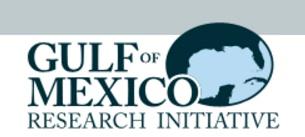
The Gulf of Mexico Research Initiative Winter Newsletter is now out. Check out the latest summaries of GOMRI-funded projects, the latest scientific publications and more.
|
Using Wave Glider to measure waves: A technical, peer-reviewed paper, Measurements of Directional Wave Spectra and Wind Stress from a Wave Glider Autonomous Surface Vehicle, was published in American Meteorological Society Journal. The research was done by Jim Thomson and James Girton of Applied Physics Laboratory and the University of Washington and includes comparisons with other sensors.
|
This announcement seeks proposals from universities to purchase equipment and instrumentation in support of research in areas of interest to the DoD. DoD interests include the areas of research supported by the Army Research Office (ARO), the Office of Naval Research (ONR), and the Air Force Office of Scientific Research (AFOSR. A central purpose of the DURIP is to provide equipment and instrumentation to enhance research-related education in areas of interest and priority to the DoD. DoD areas of research interest are published at the following internet locations:
Army Research Office
Office of Naval Research
Air Force Office of Scientific Research
|
| Senior Scientist Career Opportunity at Anderson Cabot Center for Ocean Life, New England Aquarium |
|
Launched in 2016, The Anderson Cabot Center for Ocean Life (ACCOL) represents the research and conservation division of the New England Aquarium (NEAq). With the overarching goal to transform science into action, the ACCOL builds on the NEAq's nearly 50-year legacy of pioneering research and stakeholder conservation engagement to strengthen the health and resilience of our oceans.
We seek a dynamic and accomplished senior research scientist with a proven fundraising and publication record in the broad realm of conservation physiology/medicine to chair and lead the ACCOL's Marine Animal Stress and Ocean Health (MSOH) Program. Regardless of the biological level of organization of his/her research, we particularly seek a candidate with deep experience running a program that scales to the marine population and/or ecosystem level. This individual is expected to integrate his/her own established research program into a successful ACCOL legacy program/laboratory in stress and reproductive endocrinology, health assessment and ocean health. He/she is also expected to incorporate and collaborate with other research/conservation efforts in conservation physiology and veterinary medicine across the ACCOL/NEAq, and to lead a multidisciplinary team of investigators. This position will report directly to The Chief Scientist of the ACCOL, and directly manage at least 2-3 technical and Ph.D. level research staff.
- The deadline for submission is Friday, May 25, 2018.
- Details
|
| Career Opportunities for Undergraduates - AVS Unmanned Marine Systems |
| AVS-Unmanned marine systems seeks AVS Operator Engineer, Aluminum Welder/Fitter and Project Administrative Assistant. For more information on each of these opportunities please visit their vacancies website. |
|
Ph.D. in Climate, Harmful Algal Blooms and Human Health at University of Exeter and UK Met Office
|
|
This doctoral studentship would suit a student interested in environmental modelling, epidemiology, and public health.
Harmful Algal Blooms (HABs) and their potent natural toxins have been associated with human and animal diseases, ranging from gastrointestinal to neurodegenerative diseases (Zaias 2010, Hoagland 2014). HABs are increasing in aquatic ecosystems worldwide, associated with non-climatic factors (e.g. nutrient loading) and possibly climate change (Moore 2008, Berdalet 2016). Changes in ocean temperature etc. caused by climate change will affect future frequency and algal bloom composition; new toxic species forming significant blooms have been identified throughout Europe. These factors may lead to permanent establishment of once uncommon harmful algal species in UK waters, posing increasing threats to ecosystems and human health and wellbeing.
Ph.D. Research Aims:
1) Review the literature of the connections between weather and climate, HABs and human health. o ignored
2) Investigate the associations between recent and climatic environmental variability with observed HABs sampled Biotoxin Monitoring Programme in UK waters, and explore possible associations with human health effects around the UK.
3) Provide recommendations around the understanding of the connections between weather and climate, HABs and human health for the UK.
A detailed plan of studies will be developed by the successful candidate in collaboration with the supervisors.
The studentship will cover a stipend at the minimum Research Council rate, currently £14,553 per annum, plus a top-up of £1,500pa from the Met Office, research costs and tuition fees at the UK/EU rate for students who meet the residency requirements outlined by NERC. Students from EU countries who do not meet the residency requirements may still be eligible for a fees-only award but no stipend. Applicants who are classed as International for tuition fee purposes are not eligible for funding.
|
| Research Assistant in Algal Bloom Biology and Ecology (toxic dinoflagellates) |
|
A 12-month Research Assistant position is available to assist in studies of the toxic dinoflagellate responsible for ciguatera fish poisoning. The position is primarily laboratory-based and will include isolating and culturing algae, and basic molecular biology work such as PCR. Other studies are possible, depending on background. The position is open without preference to B.S. and M.S. degree holders, salary will be commensurate with experience. Prior work in either algal culture or molecular biology is strongly preferred, experience with both is a definite plus. o ignored
The position is in the Erdner laboratory at the University of Texas Marine Science Institute in Port Aransas, TX . Questions about the position should be directed to [email protected].
|
| Ph.D. Opportunities in Phytotoxin Lab in Nantes |
Chemical diversity and ecology of the genus Gambierdiscus in Atlantic waters, focus on Gambierdiscus excentricus and ciguatoxins in the Caribbean
Co-supervisor: Rodolphe LEMEE (Lecturer Sorbonne Université, Laboratoire Océanographique de Villefranche)
Additional advisor: Samuel Bertrand (Lecturer Université de Nantes, Laboratoire Mer Molécules Santé)
Laboratoire/unité, département d'accueil: ODE/DYNECO/PHYC
Cofinancing guaranteed : 50 % Ifremer
Cofinancing currently sought : 50% Région des Pays de la Loire (spring 2018)
Employer: Ifremer
Application deadline:
30 April 2018
|
2018
May
The joint OCEANS and Techno-Ocean meetings at the Kobe Convention Center, Kobe, Japan
June
June 11-14, 2018, Hilton Bayfront Downtown, St. Petersburg, Florida
June 10-15, 2018, Victoria, British Columbia, Canada
August
August 20-24, 2018, University of Washington, Seattle
This 5-day hands-on workshop is aimed at exploring, creating and
promoting effective computation and analysis workflows for large and
complex oceanographic data. The focus will be on data provided by the
National Science Foundation's Ocean Observatories Initiative (OOI).
Comparisons to other large-scale ocean observing assets, such as Argo,
IOOS, etc. are welcome and encouraged. Travel and lodging grants are available for non-local accepted participants. Participants are expected to attend the entire workshop.
To apply, please fill out the
application
by May 7, 2018. Accepted
applicants will be notified no later than May 21, 2018
October
Call for Applications: Student Workshop on International Marine and Coastal Management
The 4th Student Workshop on International Marine and Coastal Management in the Gulf of Mexico (SWIMM 2018) is scheduled for Oct. 7-16, 2018 in northern central Cuba (Yaguajay, Caguanes National Park, and Cayo Santa Maria.
The program brings together graduate students from the United States, Mexico, and Cuba for week-long workshops involving peer-to-peer exchanges, shared learning, and intensive interactions with scientists, managers, and practitioners. The focus of SWIMM 2018 will be on northern central Cuba, an area that experienced the catastrophic impact of Hurricane Irma in August 2017. Students will participate in the development of a set of indicators and a visual report that provide a synoptic evaluation of the damage caused by the hurricane and the degree of ecological recovery.
Applications are invited from graduate students who are enrolled in Ph.D. or M.S. programs:
- in the United States, Mexico, and Cuba, or
- who are citizens of any of these three countries, but enrolled in a graduate program elsewhere.
Candidates should be engaged in a program of studies and/or research in areas of environmental management, environmental or ecological sciences, environmental anthropology or political and social sciences with a focus on environmental issues, adaptation to risk and disasters, coastal or marine sciences, oceanography, biology, ecology or marine zoology, and related disciplines.
The program will cover roundtrip airfare from the U.S. or Mexico to Cuba and transport, food, and lodging expenses related to the workshop while in Cuba.
|
|
Share Your News with GCOOS
|
Do you have a meeting, job or funding announcement? Please let us know so we can help spread the word. Email info, including all pertinent details and website links, to Laura Caldwell, GCOOS Staff Assistant, [email protected].
Are you starting or finishing a research project, reporting new findings, have a new publication or other big news to share with the GCOOS community? Please email our Public Relations and Content Coordinator, Nadine Slimak at Vetted Communications, [email protected].
|
|
|
|
|